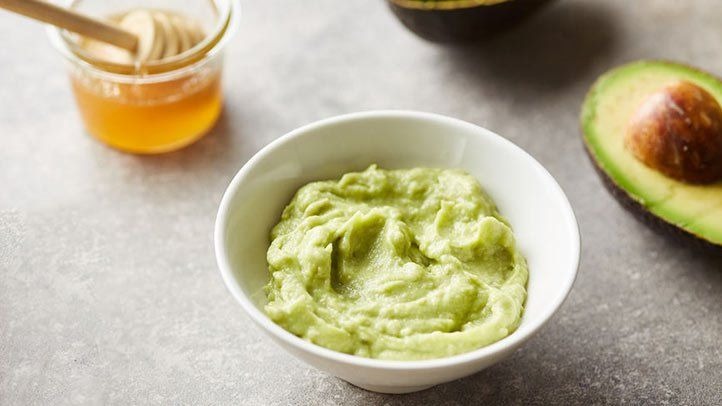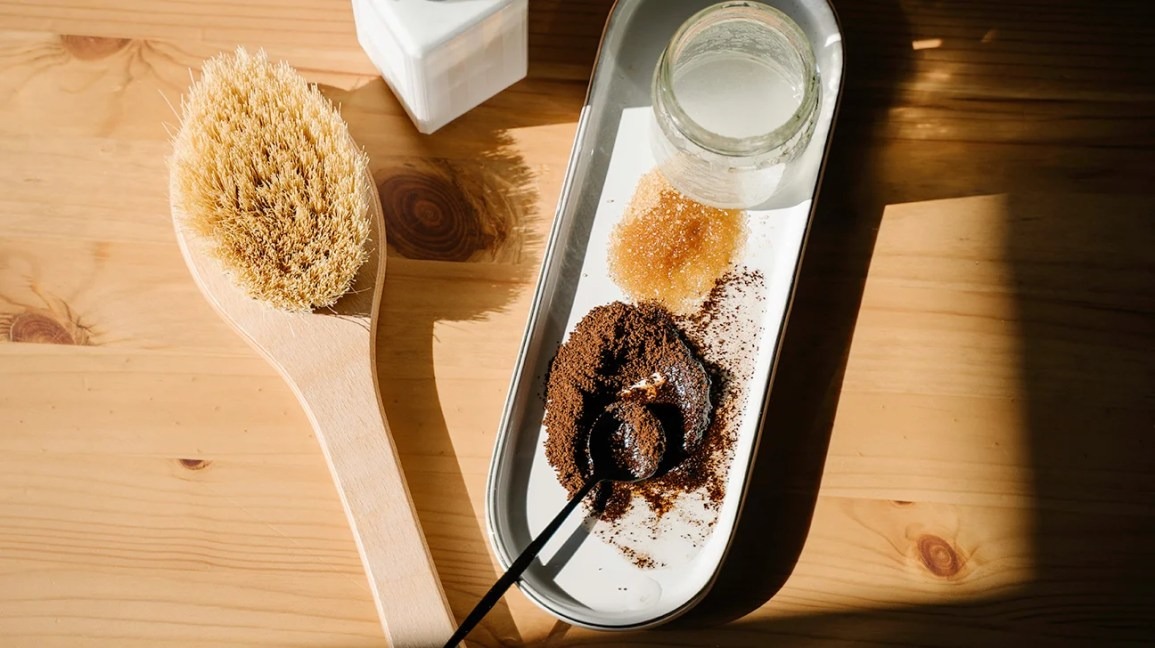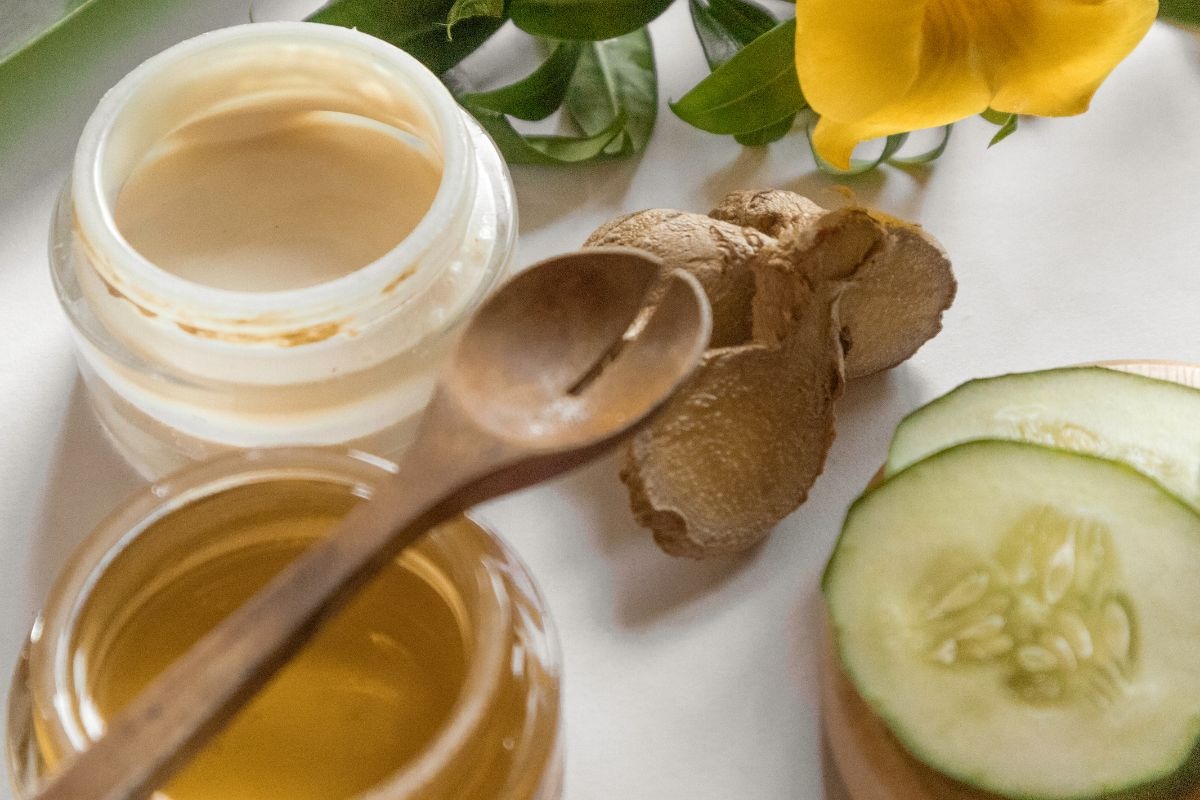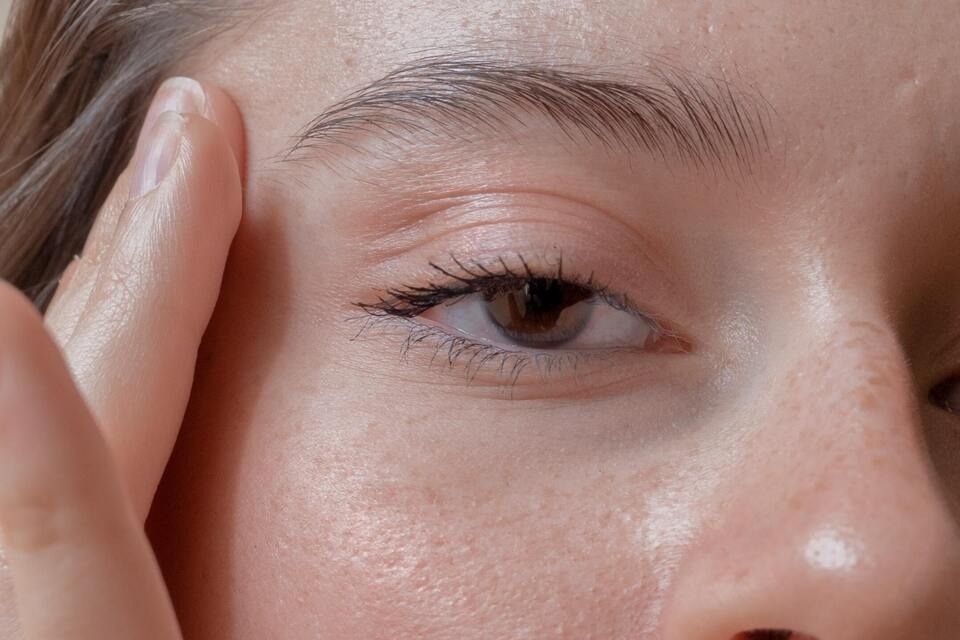The list of culprits that cause dry skin is long, from daily bathing habits (think hot showers and drying off with a towel) and bad winter weather to the lack of natural oils in the skin as it ages.
The good news is that you may not need to see a dermatologist to soothe dry skin, unless you are treating a skin condition. Instead, you might consider including a home remedy in your skincare routine.

In fact, the ingredients for these fixations for dry skin may already be in your kitchen. Some of the ingredients we include below, such as coconut oil, tea, and aloe vera, are often collectively referred to as “cures,” although they have been used as homeopathic medicines for centuries in cultures around the world. However, it is important to note that if you are treating an underlying skin condition that may be causing your dry skin, you should definitely consult a board-certified dermatologist before trying a home remedy. This can help you avoid the worsening of dry skin.
a creamy avocado solution for a face mask for the treatment of dry skin
Fresh and creamy avocado moisturizes dry and cracked skin.
Martí Sans / Stocksy US
“Home remedies are great for many skin types, especially if you need them or are opting for alternative skin care products,” says Jennifer Adell, a licensed cosmetologist and senior cosmetologist at New Beauty and Wellness in Westport, Connecticut. “However, if you suffer from chronic skin diseases such as rosacea, psoriasis and cystic acne, consult a cosmetologist or dermatologist.”
Why choose a natural remedy for dry skin instead of buying a product?
If the long lists of ingredients worry or confuse you, it is worth trying a home remedy. Over-the-counter products can contain many ingredients; they contain not only the active moisturizing products, but also preservatives, says Christine Poblete-Lopez, MD, director of the residency program and vice chair of the department of dermatology at the Cleveland Clinic in Ohio.

This is usually the case with water-based products because bacteria grow easily in these formulas, according to Michigan State University. But although these preservatives have good intentions, not to mention additives such as alcohol and fragrances, they can contribute to irritation, dryness of the skin and sometimes allergic reactions.
You may prefer to keep your skin care simple, especially if you have allergies or a sensitive complexion. For example, unlike water-based lotions and creams loaded with preservatives, oils have a natural base, which makes them a good choice for dry skin if there are no skin diseases.
However, keep in mind that oils and other over-the-counter medicines are not regulated by the US Food and Drug Administration (FDA), so they are not guaranteed to be risk-free. It’s always a good idea to consult with a dermatologist before adding a new DIY recipe to your skincare routine to be on the safe side.
How Natural Remedies can Soothe Dry And Irritated Skin
Your skin naturally produces oil, called sebum, which protects it from moisture loss, but everyday actions, such as forgetting to apply moisturizer or washing your hands with a drying soap, can remove these natural oils. For people without acne, oils can restore the shine and protective moisture barrier of the skin.
Dermatologists generally recommend that people with acne choose an oil with caution, as acne is usually caused by the overproduction of sebum, according to the Association of the American Academy of Dermatology (AAD). One option is tea tree oil, as some evidence supports the idea that tea tree oil can improve mild to moderate acne, including a previous randomized controlled trial and an uncontrolled pilot study published in the Australasian Journal of Dermatology in August 2017, although you should consult a dermatologist before starting a new acne treatment. In particular, tea tree oil can cause skin irritation.
There are many ways to take advantage of the moisturizing benefits of oils alone or with other ingredients to make a homemade nourishing mask or scrub. Poblete-Lopez suggests that castor oil, lavender oil and avocado oil may be good ingredients for certain people with dry skin.
Coconut oil is another oil that you can have in your kitchen cupboard that can be a good choice for those who are not prone to acne. In a previous randomized controlled trial, people with atopic dermatitis, a type of eczema and an allergic skin condition characterized by dryness and itching, saw an improvement in symptoms when they used virgin coconut oil on their skin.
Aloe vera, a houseplant with natural healing properties, also acts as a natural moisturizer. According to a report published in the plant foods for human nutrition in June 2019, aloe vera gel contains mucopolysaccharides, such as hyaluronic acid, that help retain moisture in the skin, making it another natural moisturizing skincare ingredient you want to try.
Natural Home Remedies to Moisturize Dry Skin
The next time your dry skin needs care, try one of these simple home remedies.
1. Prepare a moisturizer with olive oil to soothe dry skin.
If you need extra hydration quickly, Adell recommends extra virgin olive oil as an alternative to her moisturizer, but only if you need it.
“Olive oil contains vitamin E, antioxidants, squalene and other properties that repair damaged skin,” she says. Adell also points out that this may not be a good option for acne-prone skin, as there is a risk of clogging the pores.
Before applying olive oil directly to the skin, check whether this solution is suitable for you by consulting a dermatologist. As a study published in December 2017 by the International Journal of Molecular Sciences points out, olive oil can relieve inflammation, but topical application alone can damage the skin barrier.
If you choose olive oil, Adell recommends a pure or normal form, not refined with other oils, and use it sparingly, such as applying a few drops on a face mask or massaging the oil on extremely dry areas, such as elbows.
2. Make a rich and creamy avocado mask yourself

A homemade avocado mask is another natural way to soothe dry skin, and Adell used it at home with her own family. “This face mask is packed with antioxidants [and] probiotics that promote healthy, radiant skin,” she says. She recommends combining ½ avocado with ¼ cup of natural Greek yogurt (which can improve skin texture due to its lactic acid content, according to a review in a 2020 issue of Current Pharmaceutical Biotechnology), along with a dash of Manuka honey and 1 teaspoon of turmeric for possible anti-inflammatory benefits and to improve the symptoms of inflammatory skin conditions such as eczema, according to a separate review in Nutrients from September 2019. Apply the mixture to clean skin and leave it on for 5 to 10 minutes before rinsing off.
As for the other half of the avocado, eat it! A small pilot study published in the Journal of Cosmetic Dermatology in September 2022 found that a group of women participants who ate an avocado daily increased the elasticity and firmness of their skin.




